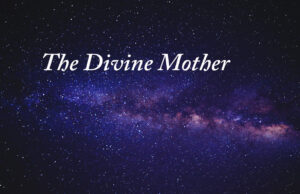He didn’t leave her in the way it is generally understood. However like all great ones he was too intensely focused on the goals he had felt as his inner mission. These were, first, the freedom of India, second, the emancipation of the human race (not just a few individuals or groups) from its present state of ignorance and suffering, thirdly, to lead mankind towards world unity, fourth, to ensure the rise of India and its rightful place in the world and, finally, to work out the next evolutionary leap of mankind from the present animal humanity to the future divine superhumanity. This last mission was the most difficult as it meant establishing a new consciousness, the supramental consciousness upon earth as the new governing principle just as mind became the governing principle when apes began to evolve towards human kind. These are extraordinary dreams that Sri Aurobindo was born with.
These dreams were in their formative stage when he got married. But the partition of Bengal made him plunge headlong into the Freedom movement which required organising revolutionary activities, writing and editing three journals to awaken and inspire the people of India, taking over the charge of National College in Kolkata to lay down the foundations of a national education plus carry on with his Yoga and the fast developing spiritual life. All this left little or no time for conjugal life, if at all it would interest a man who had so selflessly given himself to the nation, to humanity and to God. His letters to his wife Mrinalini Devi reveal his heart of fire burning with love for the millions whom he sought to uplift. He even asked her to join him in his higher pursuits and goals though evidently never forced or compelled anything upon her including the natural wish of a human husband to look after his basic needs. He let her remain free while taking care of whatever material and emotional needs he could from a distance.
When he went to pondicherry under an inner compulsion of the Divine Command under dangerous circumstances, he stayed in touch with her. He couldn’t have asked her then to join because he was not in any position to look after her. Hence he let her stay with her parents. In 1918, when he felt that his sadhana had arrived at some kind of completion and things were somewhat stable, he did invite her to join him. But destiny had it otherwise and Mrinalini Devi left her body on the way to Pondicherry struck by high fever. His letter to her father after her death reveals the deep compassion and love he had for her, a love divinely human, too high and pure for mortal hearts to understand and bear. Even after her death, he continued to watch over her destiny and saw to it that she was reborn under circumstances that led her to him as she grew up. She eventually came and stayed in the Ashram and was treated in a very special way by Sri Aurobindo and the Mother. She who could hardly be with him as a woman married to Sri Aurobindo had her inner faculties so developed in the next life by His Grace that she could communicate inwardly with him freely. Several of her such visions have been documented by none other than Nirod da, Sri Aurobindo’s scribe for Savitri.
So was her life a tragedy since Sri Aurobindo could hardly be with her? Well if we judge so only by outer material yardstick within the framework of a single life. But if we see it in totality then one would well say how blessed was she and what a special Grace it was to be married to Sri Aurobindo even if for a moment. Seen thus it becomes the story of immortal love beautifully described in his poem by this title.
Immortal Love
If I had wooed thee for thy colour rare,
Cherished the rose in thee
Or wealth of Nature’s brilliants in thy hair,
O woman fair,
My love might cease to be.
Or, had I sought thee for thy virtuous youth
And tender yearning speech,
Thy swift compassion and deliberate truth,
O heart of ruth,
Time might pursue, might reach.
But I have loved thee for thyself indeed
And with myself have snared;
Immortal to immortal I made speed.
Change I exceed
And am for Time prepared.
-Sri Aurobindo
Affectionately,
Alok Da



